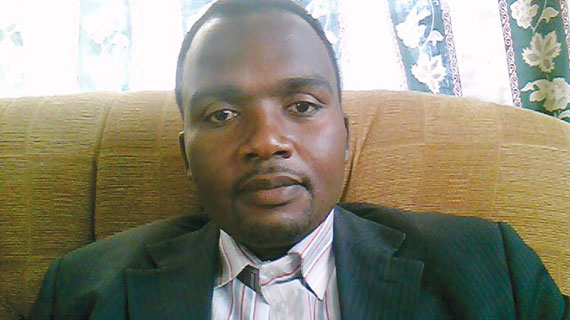
THERE is a saying “necessity is the mother of all inventions”. One has argued that leaders are not born, but they are spawned or shaped into such by circumstances and situations.
What is true of leadership in general is also true of business leadership.
Various studies have revealed that there are many past and current eminent leaders who arrived at their positions without any sign or pointer that they had leadership qualities.
The development of business studies as a science which straddles both commercial and social aspects of life has led many folks to believe that leadership can be learnt fully in a classroom environment.
Nowadays it is not uncommon to hear of leadership incubation banks or leadership development laboratories.
Since leadership in general is a complex facet of human endeavour and interaction; it stands to reason that leaders are complex since they are produced by complex situations which are always in a state of flux.
There is nothing (whether good or bad) which occurs without a cause and there is no cause which is not linked to some purpose.
All situations or business events that seem to occur by chance are actually part of a complex tapestry of circumstances generated by people as they make their history.
- Chamisa under fire over US$120K donation
- Mavhunga puts DeMbare into Chibuku quarterfinals
- Pension funds bet on Cabora Bassa oilfields
- Councils defy govt fire tender directive
Keep Reading
The science of statistics actually shows that even the so-called random events that characterise populations may actually have a systematic pattern to them or conform to a certain sequence of events.
This implies that current leaders actually exist because past and current conditions necessitated their existence.
One online dictionary defines serendipity as an aptitude for making desirable discoveries by accident.
There are many prominent business people who ventured into their current fields almost by chance. Robert Edward “Ted” Turner III the founder of Cable News Network is one business leader who made a great fortune by having an inclination of buying nearly bankrupt firms, turning them around to cash-rich and strategically sound firms.
It takes more than books to have the acumen that initiates the creation of a company like Inditex which owns the Zara clothing brand. According to Wikipedia, Inditex, the biggest fashion group in the world, operates over 6 200 stores worldwide and owns brands like Massimo Dutti, Bershka, Oysho, Pull and Bear, Stradivarius, Zara, Tempe and Uterqüe.
This conglomerate was founded by the humble and media-shy Spanish mogul Amancio Ortega Gaona.
Ortega was born in abject poverty. His father was a railroad worker and his mother was a housemaid.
He started as a delivery boy in a textile firm. He worked hard and learnt the basics of business overtime and eventually found success along with his wife when they co-founded Zara.
Because money never clouded his vision; he continued to work hard.
It is clear that in the case of Ortega necessity caused by poverty pushed him to the textile firm which eventually gave him a clue of what his destiny in life and business was all about.
While William Horman in Vulgaria would say “manners maketh a man”, one would argue that it is fruitful and diligent work which makes a man.
The morale of Ortega’s rags-to-riches story is that the situation where one is at present often carries an open clue and seeds of his or her ultimate destiny in life.
There are many people who work at places like Bulawayo’s Nkulumane Sekusile and Emganwini’s Mupedzanhamo flea markets who have made a fortune through buying and selling.
Some of the former flea market merchants have become industrialists by venturing into light manufacturing at Kelvin Industries and Donnington West industrial site.
Most of those folks became entrepreneurs because they could not get formal work.
They, thus, founded their own enterprises more out of necessity than curiosity.
If one desires to be a business person, one does not need to search high and low for the line of business to specialise in.
The key to business success is isolating what one is passionate about which matches other people’s needs.
At the end of the day the creation of wealth is not about studying complex academic formulae or models and trying to superimpose them into the real world but it is about meeting needs and wants of people in society.
In the modern world people’s earnings are only, to a smaller extent, determined by what people know.
It is a basic fact of life that all people make earn a living by the problems they solve.
What people do about what they know and who benefits from what they know determines their wealth or fortune.
If mere possession of head knowledge afforded financial benefits in business, most of the university professors the world over would be topping the Forbes list of billionaires.
Life is about solving problems not just merely studying and knowing about them. Those people with an appetite for problem solving risk taking and the spontaneity to initiate companies out of what they are passionate about are highly likely accumulate a lot of wealth.
Ian Ndlovu is an economics lecturer based at the National University of Science and Technology. His research interests cover business, development, economic and e-commerce issues. He writes in his personal capacity.










